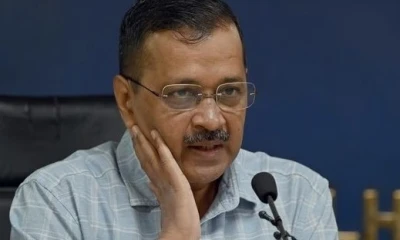Delhi Chief Minister and Aam Aadmi Party convener Arvind Kejriwal remained absent for the seventh time from the Enforcement Directorate’s summons, continuing the ongoing saga related to the money laundering case linked with purported irregularities in the Delhi excise policy 2021-22. AAP responded, urging the probe agency to await a court directive rather than repeatedly summoning Kejriwal.
The latest summons from the ED, issued on February 26, requested Kejriwal’s appearance, marking the seventh time he has evaded interrogation since the initial summon on November 2 last year. Kejriwal contested the validity of the notices, deeming them “vague, motivated, and unsustainable in law.”
Despite subsequent summons on December 18, January 3, January 18, February 2, and February 19, all of which were disregarded by the Delhi CM, who denounced them as “illegal,” Kejriwal persisted in his refusal to comply and called for the withdrawal of the summonses.
Concurrently, the ED lodged a complaint against Kejriwal for non-compliance with its summons in the aforementioned case.
The Delhi Government’s excise policy for 2021-22 aimed to revitalise the city’s liquor trade by substituting the sales-volume-based system with a license fee structure for traders. However, the policy was revoked following a demand for a CBI investigation by Delhi Lieutenant Governor VK Saxena, citing alleged irregularities.
According to the ED, the AAP, under Kejriwal’s leadership, allegedly received kickbacks amounting to ₹100 crore to finalise the excise policy. It was further alleged that a substantial portion of these funds was utilized for the party’s electoral campaign in Goa.
To date, the ED has apprehended prominent AAP figures, including former Deputy Chief Minister Manish Sisodia and Rajya Sabha MP Sanjay Singh, in connection with the case.

















